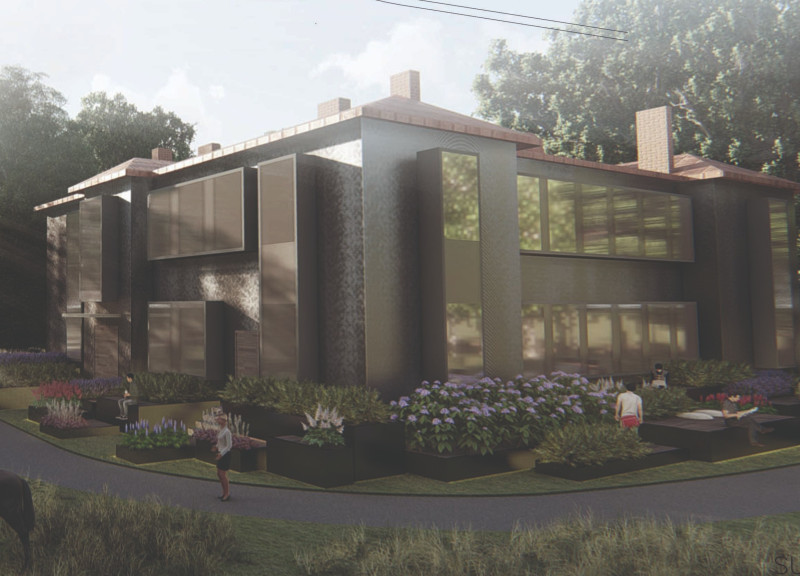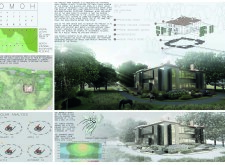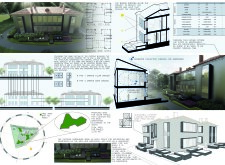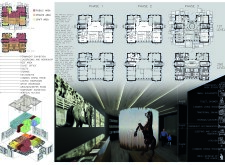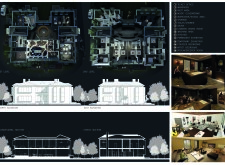5 key facts about this project
The Omuli Museum of the Horse, located in Valka, Latvia, is an adaptive reuse project transforming the former Omuli school into a contemporary museum dedicated to equine culture and arts. This architectural design focuses on the integration of the existing historical structure with modern elements while promoting community engagement and sustainable practices. Through the careful consideration of its context, materials, and function, the project creates a space that encapsulates local heritage while serving diverse public needs.
Architectural Integration and Material Choice
One of the defining aspects of this project is its thoughtful integration of contemporary architectural practices with the historical significance of the original building. The design maintains the existing footprint, preserving the structure’s historical integrity while introducing modern materials that enhance its aesthetic and functional performance. Key materials used in the project include natural basalt rock panels for exterior cladding, which not only provide durability but also resonate with the local geological landscape. Additionally, the incorporation of mirror windows maximizes natural light and creates a connection between indoor and outdoor spaces. This reflective approach fosters an interaction with the surrounding environment, inviting visitors to engage with nature alongside the museum's offerings.
Sustainability and Adaptive Functionality
The Omuli Museum of the Horse distinguishes itself through its commitment to sustainability and resource efficiency. Rainwater collection systems have been integrated into the design to support water management efforts, reducing reliance on external water sources. The architectural layout promotes passive solar design principles, ensuring natural heating and cooling throughout the changing seasons. This focus on environmental responsibility is complemented by the museum's flexible spatial organization, which includes dedicated areas for exhibitions, workshops, and communal activities. This adaptable layout allows for a seamless flow between various programs, facilitating creative collaboration among artists and visitors.
Cultural and Community Engagement
This project represents a significant cultural contribution to the local area, blending artistic expression with historical education. The redesigned spaces encourage community involvement, offering workshops and temporary exhibition areas that cater to diverse audiences. Outdoor gardens are strategically incorporated as extensions of the museum, providing interactive environments for artistic endeavors and relaxation. By establishing tactile connections between natural elements and creative practice, the project fosters a sense of place that resonates with local traditions and artistry.
To explore the architectural plans, sections, and design ideas further, readers are encouraged to delve into the project presentation. Detailed insights into the architectural choices and functionality of the Omuli Museum of the Horse will enhance understanding of this compelling design endeavor.


